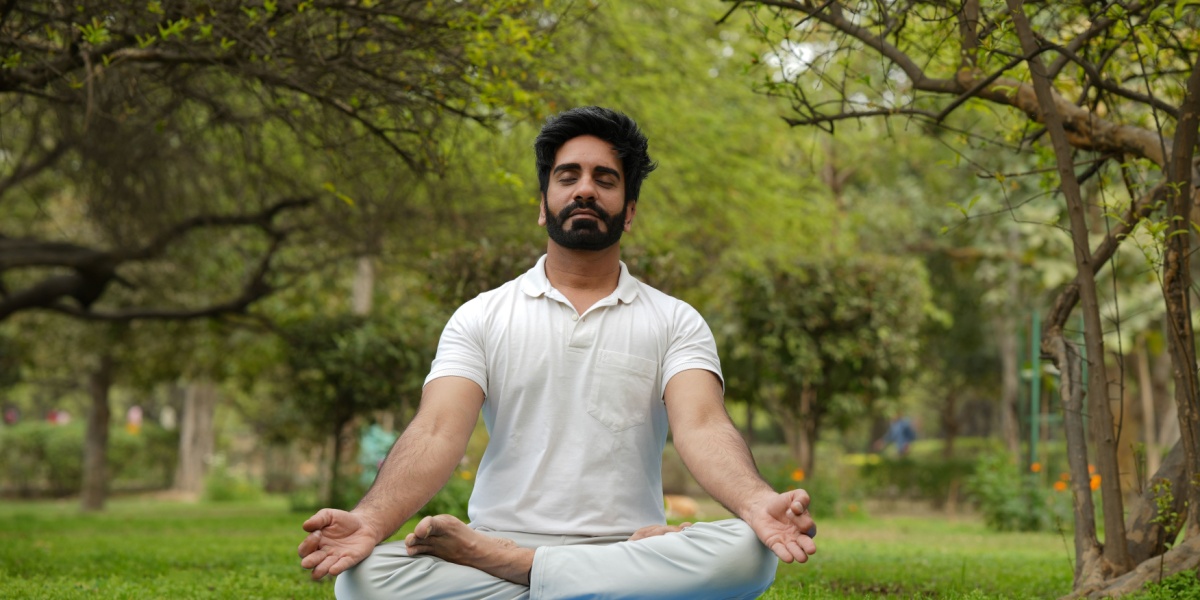How Mindfulness Enhances Your Daily Life
Mindfulness is the practice of learning to be fully aware of the present moment, without passing judgment on it. This means that being mindful requires you to let your feelings pass, without evaluating them. Instead, you focus fully on the present moment, without worrying about the past or future. The present-moment awareness that comes with mindfulness has numerous benefits, including stress reduction.

1. Stress Reduction
Stress reduction is perhaps the most well-documented benefit of mindfulness. The practice of mindfulness is commonly used for stress management. Research suggests that the present-moment awareness associated with mindfulness significantly reduces an individual’s perception of their current stress levels. Being mindful can also improve one’s ability to cope with daily stressors. [1]
Mindfulness-based stress reduction programs teach people to be aware of their thoughts and experiences, without becoming reactive toward them. Instead, the goal is for people to learn to accept thoughts and events as they occur without past events or worries influencing them. Common practices taught in mindfulness-based stress reduction include body scanning, meditation, and yoga. [2]
2. Improved Focus and Concentration
Mindfulness-based practices like meditation are also used to improve focus and concentration. Researchers have found that mindfulness meditation improves general attention span, strengthens executive control in the brain, and enhances the ability to resist impulses. [3]
Mindfulness practices can help the brain to remain alert, which is important for attention and concentration. Because mindfulness practices are associated with improved impulse control, they can help you stay on-task and ignore distracting information. All of this makes for better focus and cognitive functioning, which could allow you to be more productive at work or school. [3]
3. Better Emotional Regulation
Mindfulness-based practices like meditation are also linked to improved self-awareness, which can enhance emotion regulation. Being aware of emotions, but accepting them without judgment, is a cornerstone of mindfulness. Observing feelings without reacting, as mindfulness teaches, can prevent impulsive reactions, thus enhancing emotion regulation capabilities. [4]
With regular mindfulness practice, you can expect to develop better emotion regulation skills. This means you will be able to respond to life situations, even stressful or upsetting ones, with greater thoughtfulness and control. This can make mindfulness helpful for managing mental health issues, such as improving symptoms of depression and anxiety that may coincide with poor emotion regulation and coping skills. [4]
4. Enhanced Relationships
Among the other benefits of mindfulness training is that it may improve your relationships. Communication research indicates that mindfulness contributes to empathy and active listening skills. [5] This can make it easier for you to consider others’ perspectives, and more able to offer social support. These factors, understandably, could improve your social relationships.
If you become mindful and thus more attuned to the present moment, you won’t find your mind wandering during conversations with loved ones. Instead, you’ll be fully present in conversations and ready to offer support and understanding. This will enhance your connections with friends, family, and colleagues.
5. Increased Self-Awareness
Self-awareness applies to other categories associated with the benefits of mindfulness meditation, but it’s also worth mentioning on its own. As mindfulness helps people to focus on the present, it can assist with gaining greater insight into your current thoughts, behaviors, and motivations. With this comes the opportunity for self-reflection, which ultimately results in greater self-awareness of your patterns. [6]
The increased self-awareness that comes with mindfulness offers several psychological benefits. First, self-reflection can help people to persist in the face of stress, which is important for meeting goals and completing tasks. In addition, self-awareness can lead to greater acceptance of self and others, adding to the importance of mindfulness. [6]
6. Greater Overall Well-Being
Finally, improved well-being is also among the benefits of mindfulness. Psychologists have found that people who practice mindfulness tend to experience higher levels of psychological and perceived well-being. A person’s perceived well-being is associated with more positive emotions, fewer negative emotions, and a greater quality of life. [7]
Psychological well-being involves having positive relationships with other people, establishing autonomy, and finding purpose in life. [7] As mindfulness can improve both perceived and psychological well-being by making one more aware of one’s thoughts and feelings in the present moment, it can contribute to overall happiness.
When to Practice Mindfulness
If you’re ready to enjoy the benefits of practicing mindfulness, it’s time to incorporate it into your daily routine. Mindfulness can be practiced at any time throughout the day. What is most important is that you develop a consistent mindfulness routine that you can stick to regularly.
Some simple ways to get started on your mindfulness journey include:
- Begin the morning with meditation to start your day with a mindful orientation. You can find meditation technique videos online to follow along with if you’re not sure how to start a meditative practice.
- Practice mindful eating to savor each bite without distractions, focusing on the taste and sensations that come along with eating.
- Practice deep breathing exercises to ground you during stressful moments. Becoming aware of your breathing is a mindfulness practice that can help you regulate emotions related to stress. [8]
- Practice mindfulness in the evening to reflect on what went well throughout the day. Take time to appreciate and be grateful for the blessings you experienced as the day unfolded. [9]
- Take a yoga class to improve your mindful awareness and induce a sense of calm. This may also come with physical health benefits, such as reduced blood pressure and improved function of the nervous and endocrine systems. [10]
By making mindfulness a regular practice, you’re likely to experience lasting benefits that lead to enhanced mental health, well-being, and relationships. Whether through guided meditation, journaling, or simply taking a few deep breaths, small moments of mindfulness can make a noticeable difference in your everyday life.
- Donald, J. N., Atkins, P. W. B., Parker, P. D., Christie, A. M., & Ryan, R. M. (2016). Daily stress and the benefits of mindfulness: Examining the daily and longitudinal relations between present-moment awareness and stress responses. Journal of Research in Personality, 65, 30-37. https://www.sciencedirect.com/science/article/abs/pii/S0092656616301118
- Khoury, B., Sharma, M., Rush, S. E., & Fournier, C. (2015). Mindfulness-based stress reduction for healthy individuals: A meta-analysis. Journal of Psychosomatic Research, 78(6), 519-528. https://pubmed.ncbi.nlm.nih.gov/25818837/
- Sumantry, D., & Stewart, K. E. (2021). Meditation, mindfulness, and attention: A meta-analysis. Mindfulness, 12, 1332–1349. https://www.researchgate.net/publication/348985149_Meditation_Mindfulness_and_Attention_a_Meta-analysis
- Guendelman, S., Medeiros, S., & Rampes, H. (2017). Mindfulness and emotion regulation: Insights from neurobiological, psychological, and clinical studies. Frontiers in Psychology, 8, 220. https://www.frontiersin.org/journals/psychology/articles/10.3389/fpsyg.2017.00220/full
- Jones, S. M., Bodie, G. D., & Hughes, S. D. (2016). The impact of mindfulness on empathy, active listening, and perceived provisions of emotional support. Communication Research, 46(6), 785–809. https://journals.sagepub.com/doi/abs/10.1177/0093650215626983
- Sutton, A. (2016). Measuring the effects of self-awareness: Construction of the Self-Awareness Outcomes Questionnaire. European Journal of Psychology, 12(4), 645–658. https://pmc.ncbi.nlm.nih.gov/articles/PMC5114878/
- Hanley, A., Warner, A., & Garland, E. L. (2015). Associations between mindfulness, psychological well-being, and subjective well-being with respect to contemplative practice. Journal of Happiness Studies, 16, 1423–1436. https://www.researchgate.net/publication/271627113_Associations_Between_Mindfulness_Psychological_Well-Being_and_Subjective_Well-Being_with_Respect_to_Contemplative_Practice
- King, D., Henderson, S., & Sandhu, M. (2019). Deep breathing as a mindfulness practice in year 10 science. In Mindfulness in Education (1st ed., p. 11). Routledge. https://www.researchgate.net/publication/323526591_Deep_breathing_as_a_mindfulness_practice_in_year_10_science
- Voci, A., Veneziani, C. A., & Fuochi, G. (2019). Relating mindfulness, heartfulness, and psychological well-being: The role of self-compassion and gratitude. Mindfulness, 10, 339–351. https://self-compassion.org/wp-content/uploads/2019/05/Voci2019.pdf
- Pascoe, M. C., Thompson, D. R., & Ski, C. F. (2017). Yoga, mindfulness-based stress reduction, and stress-related physiological measures: A meta-analysis. Psychoneuroendocrinology, 86, 152–168. https://pubmed.ncbi.nlm.nih.gov/28963884/
The Clinical Affairs Team at MentalHealth.com is a dedicated group of medical professionals with diverse and extensive clinical experience. They actively contribute to the development of content, products, and services, and meticulously review all medical material before publication to ensure accuracy and alignment with current research and conversations in mental health. For more information, please visit the Editorial Policy.
MentalHealth.com is a health technology company guiding people towards self-understanding and connection. The platform provides reliable resources, accessible services, and nurturing communities. Its purpose is to educate, support, and empower people in their pursuit of well-being.
Christy Matta M.A. is a medical writer with extensive training and experience in mindfulness and dialectical behavior therapy. She has authored many articles on DBT, communication skills, happiness, mindfulness, and more.
Morgan Blair is a licensed therapist, writer and medical reviewer, holding a master’s degree in clinical mental health counseling from Northwestern University.
Further Reading
The Clinical Affairs Team at MentalHealth.com is a dedicated group of medical professionals with diverse and extensive clinical experience. They actively contribute to the development of content, products, and services, and meticulously review all medical material before publication to ensure accuracy and alignment with current research and conversations in mental health. For more information, please visit the Editorial Policy.
MentalHealth.com is a health technology company guiding people towards self-understanding and connection. The platform provides reliable resources, accessible services, and nurturing communities. Its purpose is to educate, support, and empower people in their pursuit of well-being.


